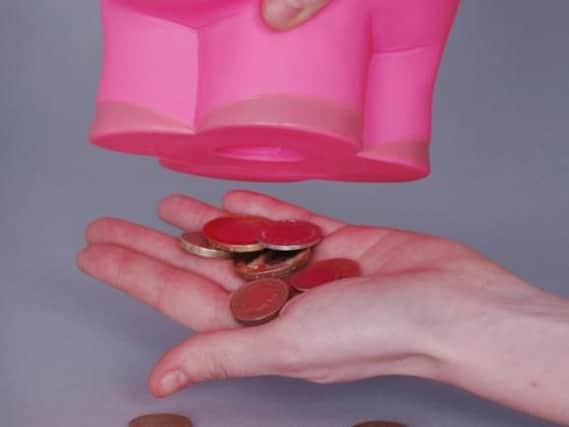Advice to tackle credit card debt


The Financial Conduct Authority found that two million credit cardholders are currently in arrears or have defaulted, and estimated a further two million are in persistent levels of debt that some may be struggling to repay.
To help those struggling with credit card debt, the charity National Debtline has compiled six tips for getting back on top of their borrowing:
1. Get on top of what you owe
Advertisement
Hide AdAdvertisement
Hide AdOpen all of your credit card statements and reminders, make a list of what you owe, with the interest rate and payment dates for each. This is the first essential step in getting on top of your situation, and forming a plan of action to reduce your borrowing.
2. Set up a direct debit or reminders for payment dates
Signing up to make your monthly credit card payments by direct debit - or at least setting yourself reminders of when payments are due - can help ensure you do not miss the date. This is really important, as even missing payment dates by a day will lead to fees being added to your debts, and could have an impact on your credit rating.
3. Draft a household budget
You will also need to draft a budget by listing all of your income and all of your expenditure. Include things you might pay annually, like car insurance, by dividing through by 12. This will give you an idea of how much you have available to pay towards each debt, and help you identify areas to cut back on if needed.
4. Pay more than the minimum payment if you can
Making the minimum payment on a credit card might be tempting, but it means your debt will only grow and could take years to pay off. Always clear as much of the balance as you can afford. This is also important because only making minimum payments can affect your credit rating, affecting your ability to borrow in the future.
Advertisement
Hide AdAdvertisement
Hide Ad5. Think about switching to a 0 per cent deal or a cheaper card
Consider switching outstanding balances to a 0 per cent balance transfer deal if you can. This is not a permanent solution, but you can use the time it gives you to come up with a plan for how to begin reducing the balance when the deal ends. If you can not get a 0 per cent deal, shop around and find a card with a lower interest rate. If you have multiple credit card balances, concentrate on paying off the most expensive card first.
6. If you are struggling, seek free advice as soon as possible
If you cannot afford even your minimum payments or if you have other debts that you are struggling with, seek free independent advice from a charity-run service such as National Debtline, Citizens Advice or StepChange as soon as possible. Do not be tempted to pay for advice - avoid profit-driven commercial debt management companies, as they charge high fees that only add to your debt burden.